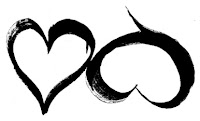You don’t have
a single feeling, thought, or behavior that is not processed at some point by
both your body and your mind. Emotions
generate a force like a physical event. You just may not be as aware of their
impact in the same way you feel pain when you touch something too hot or too
cold.
Every emotion has a corresponding "felt sense" in the
body. When you feel anger you get ready for action by tensing your jaw and
limbs. As fear strikes you tighten your stomach, chest and throat. When joy or
pleasure arises, you can breathe and move freely and expansively.
Often your body’s response to emotion is subtle. You may notice impulses
such as a slight change in your breathing rate and/or depth, or your chest,
neck and shoulders may get a bit tighter, or your hands and feet feel cold or
hot. All these sensations are your body-mind and nervous system communicating
the vocabulary of your feelings. Attention to these body language impulses will
help you secure your essential self in the present moment and determine the
kind of inner support you need right now.
Your rational mind can limit your ability to
feel inner support. Thoughts can easily get in the way of skillful behavior or
the best intentions. In times of crisis, some people find it tough to think
clearly when feeling anxious and the body is tense or braced. For others, rational
thought can be a way to grasp control of overwhelming feelings and deny they
even exist.
When feeling emotional disharmony, and especially for
persistent conflicts, your mind only gives you half the story of how to deal
with your emotions. You need to listen to your body for full disclosure.





